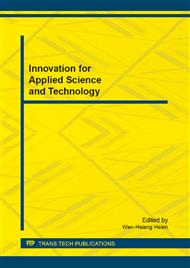p.456
p.461
p.468
p.473
p.478
p.483
p.488
p.493
p.498
Innovative Derivation for Physics Relations
Abstract:
Classical physics can be regarded as a special case of modern physics. Therefore, we applied those aspects of established modern physics that are suitable for engineering considerations, used the quantum mechanics viewpoint to deal with the physics relations in thermodynamics, and discussed the relations among the variables of physics. We obtained some results by deriving them from basic theories and physics relations, and by exploring the significance of mathematical physics. First, this study obtained the partial differential equation for the general physics relations, which is interesting and revolutionary thinking from the viewpoints of multi-physics and thermodynamic relations expansion. Meanwhile, variable relations among different physics disciplines can be obtained by applying the universal general physics relations with the Jacobian operator. The Maxwell relation is an even more special case; therefore, the physics relations obtained by this study are more universal and versatile. To further illustrate the advantages of this research, the partial differential equation obtained by this study is used to handle the various physics variables and to obtain the thermodynamic physics relations table. This study promotes the research and development of thermodynamic physics relations. There is still room for further exploration in future studies, especially in the specific area of multi-physics application relations and microscopic applications.
Info:
Periodical:
Pages:
478-482
Citation:
Online since:
January 2013
Authors:
Price:
Сopyright:
© 2013 Trans Tech Publications Ltd. All Rights Reserved
Share:
Citation:


